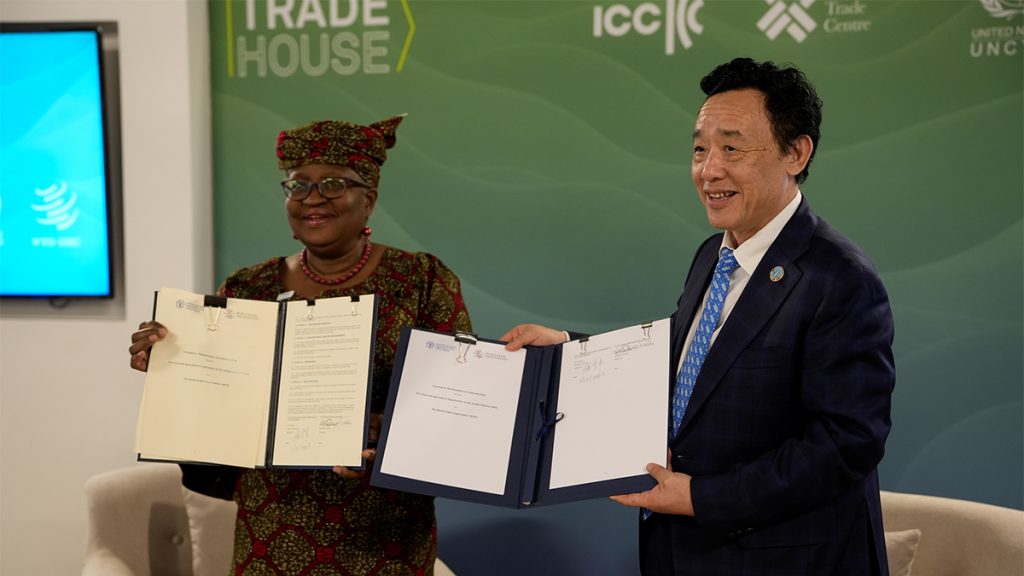WTO, FAO sign agreement to boost cooperation on trade, food and climate change

![]()

The head of the World Trade Organisation (WTO) and its Food and Agriculture Organization (FAO) counterpart on Dec 1, agreed to boost cooperation and collaboration on a range of issues in the area of food and agricultural trade and climate change.
The initiative, they said, comes at a time of growing crises affecting global food security and sustainable agriculture production. According to the World Bank’s report, as many as 783 million people are facing chronic hunger.
WTO Director-General Ngozi Okonjo-Iweala and FAO Director-General Qu Dongyu signed a Framework Memorandum of Understanding which identifies areas of common interest between the WTO and FAO to facilitate the organizations’ close cooperation in these areas. The MoU was signed at the 28th UN Climate Change Conference of the Parties (COP28) in Dubai which the two organization heads are attending.
The MoU will consolidate existing collaboration between the WTO and FAO, creating a stable framework within which future joint initiatives can take place.
Under the MoU, the WTO and FAO will strengthen collaboration in 17 areas of common interest, including support for the WTO’s ongoing negotiations on agricultural reform, the implementation of the Agreement on Fisheries Subsidies adopted at the WTO’s 12th Ministerial Conference (including on projects funded through the Fisheries Funding Mechanism Trust Fund), and hosting the annual World Cotton Day celebration on 7 October of each year.
The MoU also calls for strengthened support of FAO to the WTO Committee on Agriculture (CoA) and boosting existing collaboration on sanitary and phytosanitary measures and technical barriers to trade. Both organizations will continue their active participation in the Standards and Trade Development Facility, housed at the WTO, to help developing economies increase their food safety and animal and plant health capacity and facilitate safe trade.
The two organizations will also collaborate on climate and trade initiatives, including in the context of the annual COP meetings, as well collaborating in the context of intergovernmental processes such as the Group of Seven and Group of Twenty economies.
The WTO and FAO also pledge to develop joint publications on topics of mutual interest, including the nexus between food security, agriculture, fisheries, biodiversity, climate change, nutrition and trade. In addition, they have agreed to undertake joint technical cooperation activities and support to regional trade agreements, with a focus on Africa.
The WTO and FAO already work together within the context of the UN Global Crisis Response Group on Food, Energy and Finance set up by the UN Secretary-General in the areas of food and fertilizer, and within the Agricultural Market Information System (AMIS), the market transparency mechanism set up by the G20 economies and housed in FAO.
In addition, FAO regularly reports on the current food security situation and presents its flagship publications and research findings in the CoA, where FAO has observer status. The WTO, in turn, actively participates in various FAO bodies where it has observer status, such as the Committee on Commodity Problems.




